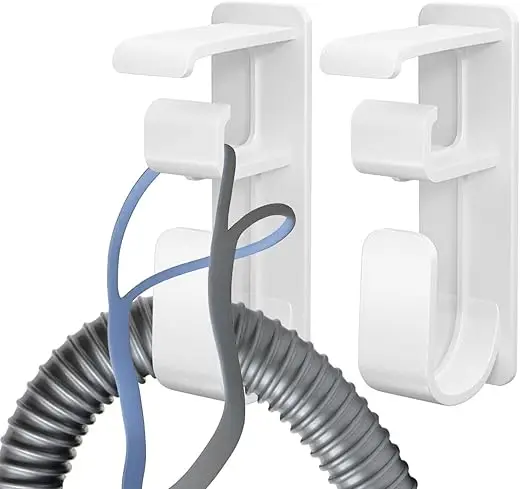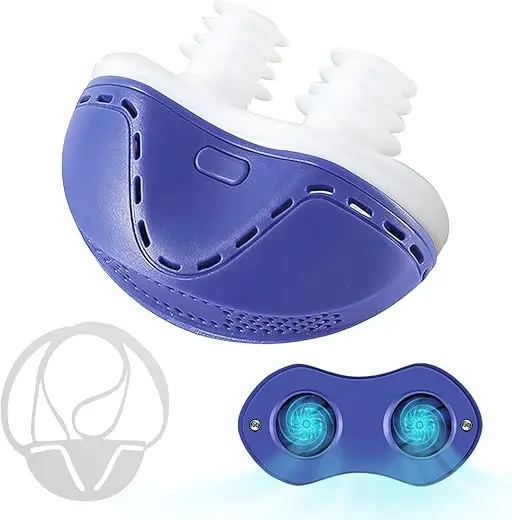Historic FDA Approval Marks First Medication for Obstructive Sleep Apnea
In a groundbreaking development for sleep medicine, the U.S. Food and Drug Administration approved Zepbound (tirzepatide) for the treatment of moderate to severe obstructive sleep apnea (OSA) in adults with obesity in December 2024. This marks the first time the FDA has approved a prescription medication specifically for treating sleep apnea, offering new hope for millions of Americans struggling with this serious sleep disorder.
What is Zepbound and How Does It Work?
Zepbound works by activating receptors of hormones secreted from the intestine (glucagon-like peptide-1 (GLP-1) and glucose-dependent insulinotropic polypeptide (GIP)) to reduce appetite and food intake. Originally developed as a weight loss medication, Zepbound belongs to a new class of drugs called dual GIP/GLP-1 receptor agonists.
Key Features of Zepbound:
- Injectable medication administered once weekly
- Dual-action hormone therapy targeting appetite regulation
- Approved for adults with moderate-to-severe OSA and obesity
- Must be combined with reduced-calorie diet and increased physical activity
Clinical Trial Results: Promising Outcomes for Sleep Apnea Patients
The FDA approval was based on results from the comprehensive SURMOUNT-OSA phase 3 clinical trials, which evaluated Zepbound’s effectiveness over 52 weeks in adults with moderate-to-severe OSA and obesity.
Study Design and Participants
The trials included two distinct groups:
- Study 1: Participants unable or unwilling to use positive airway pressure (PAP) therapy
- Study 2: Participants currently using PAP therapy who planned to continue
Remarkable Results
After 52 weeks of treatment in both studies, participants who received Zepbound experienced a statistically significant and clinically meaningful reduction in events of apnea or hypopnea as measured by AHI compared with placebo.
Specific Outcomes:
For Patients Not Using CPAP:
- 42.2% of people taking Zepbound achieved remission or mild OSA with no symptoms (vs 15.9% with placebo)
- Average reduction from 52.9 to 27.6 breathing disruptions per hour
- Average weight loss of 45 pounds (18% of body weight)
For Patients Using CPAP:
- 50.2% of those taking Zepbound achieved remission or mild OSA with no symptoms (vs 14.3% with placebo)
- 29 fewer breathing disruptions per hour compared to six with placebo
- Average weight loss of 50 pounds (20% of body weight)
Who Is Eligible for Zepbound Sleep Apnea Treatment?
Zepbound for sleep apnea is specifically approved for:
- Adults only (safety and effectiveness in children not established)
- Moderate-to-severe obstructive sleep apnea diagnosis
- Obesity (BMI ≥30 kg/m²)
- Commitment to lifestyle changes (reduced-calorie diet and increased physical activity)
Important Considerations
The American Academy of Sleep Medicine (AASM) emphasizes that Zepbound may not cure obstructive sleep apnea in everyone who receives the injection. Factors beyond weight, such as jaw and facial structure, can contribute to sleep apnea.
How Zepbound Addresses Sleep Apnea
The connection between obesity and sleep apnea is well-established. OSA occurs when a person’s upper airway becomes blocked, causing pauses in breathing during sleep. While OSA can affect anyone, it is more common in people who have overweight or obesity.
Mechanism of Action:
- Weight Reduction: Primary mechanism through appetite suppression
- Reduced Airway Obstruction: Weight loss decreases tissue pressure on airways
- Improved Sleep Architecture: Better breathing patterns during sleep
- Metabolic Benefits: Enhanced insulin sensitivity and glucose control
Can Zepbound Be Used with CPAP Therapy?
Yes, and the combination may be particularly effective. People on both Zepbound and CPAP therapy experienced an even greater reduction in breathing interruptions and greater weight loss than those on Zepbound alone.
This dual approach addresses sleep apnea from multiple angles:
- CPAP: Provides immediate airway support
- Zepbound: Addresses underlying weight-related causes
Safety Profile and Side Effects
Common Side Effects
The most common side effects of Zepbound include nausea, diarrhea, vomiting, constipation, stomach (abdominal) pain, indigestion, injection site reactions, feeling tired, allergic reactions, belching, hair loss, and heartburn.
Serious Warnings
Zepbound also contains warnings for inflammation of the pancreas (pancreatitis), gallbladder problems, hypoglycemia (blood sugar that is too low), acute kidney injury, diabetic retinopathy (damage to the eye’s retina) in patients with type 2 diabetes mellitus, suicidal behavior or thinking, and pulmonary aspiration during general anesthesia or deep sedation.
Who Should Not Use Zepbound
- History of severe allergic reaction to tirzepatide
- Personal or family history of medullary thyroid carcinoma
- Multiple Endocrine Neoplasia syndrome type 2 (MEN 2)
- Pregnancy or breastfeeding
Cost and Insurance Coverage
As a newly approved indication, insurance coverage for Zepbound sleep apnea treatment may vary. Prices start at $995.00 per month without insurance coverage.
Cost Considerations:
- Check with insurance provider for coverage policies
- Manufacturer discount programs may be available
- Compare costs with traditional sleep apnea treatments
- Consider long-term health benefits and reduced complications
Expert Perspectives on This Breakthrough
“Too often, OSA is brushed off as ‘just snoring’ — but it’s far more than that,” said Julie Flygare, J.D., president and CEO of Project Sleep. “It’s important to understand OSA symptoms and know that treatments are available, including new options like Zepbound”.
“Today’s approval marks the first drug treatment option for certain patients with obstructive sleep apnea,” said Sally Seymour, M.D., director of the Division of Pulmonology, Allergy, and Critical Care in the FDA’s Center for Drug Evaluation and Research. “This is a major step forward for patients with obstructive sleep apnea”.
What This Means for Sleep Apnea Treatment
The approval of Zepbound represents a paradigm shift in sleep apnea management:
Advantages:
- First medication-based treatment option
- Addresses underlying weight-related causes
- Can complement existing therapies
- Significant clinical trial results
Limitations:
- Only for patients with obesity
- Requires ongoing lifestyle changes
- May not eliminate sleep apnea completely
- Long-term effects still being studied
Getting Started with Zepbound for Sleep Apnea
If you’re considering Zepbound for sleep apnea treatment:
- Consult Your Healthcare Provider: Discuss your sleep apnea severity and weight status
- Complete Evaluation: Ensure you meet eligibility criteria
- Review Medical History: Address any contraindications or risk factors
- Develop Treatment Plan: Combine with diet, exercise, and other therapies as needed
- Monitor Progress: Regular follow-ups to assess effectiveness and safety
The Future of Sleep Apnea Treatment
Zepbound’s approval opens new avenues for sleep apnea research and treatment. The FDA approval comes amid growing discussion about the potential uses of weight loss drugs beyond treating obesity and diabetes.
Future developments may include:
- Additional medications targeting different pathways
- Combination therapies optimizing multiple treatment modalities
- Personalized medicine approaches based on sleep apnea subtypes
- Expanded indications for weight-management medications
Key Takeaways
- Historic First: Zepbound is the first FDA-approved medication for obstructive sleep apnea
- Proven Effectiveness: Clinical trials show significant reduction in breathing disruptions
- Weight-Dependent: Only approved for adults with both obesity and moderate-to-severe OSA
- Combination Approach: Most effective when combined with lifestyle changes and may complement CPAP
- Ongoing Care Required: Success depends on sustained weight loss and medical supervision
The approval of Zepbound for sleep apnea represents a major advancement in sleep medicine, offering new hope for patients who struggle with traditional treatments or have weight-related sleep apnea. While not a cure-all, it provides an important new tool in the comprehensive management of this serious sleep disorder.
This article is for informational purposes only and should not replace professional medical advice. Always consult with your healthcare provider before starting any new treatment for sleep apnea.



